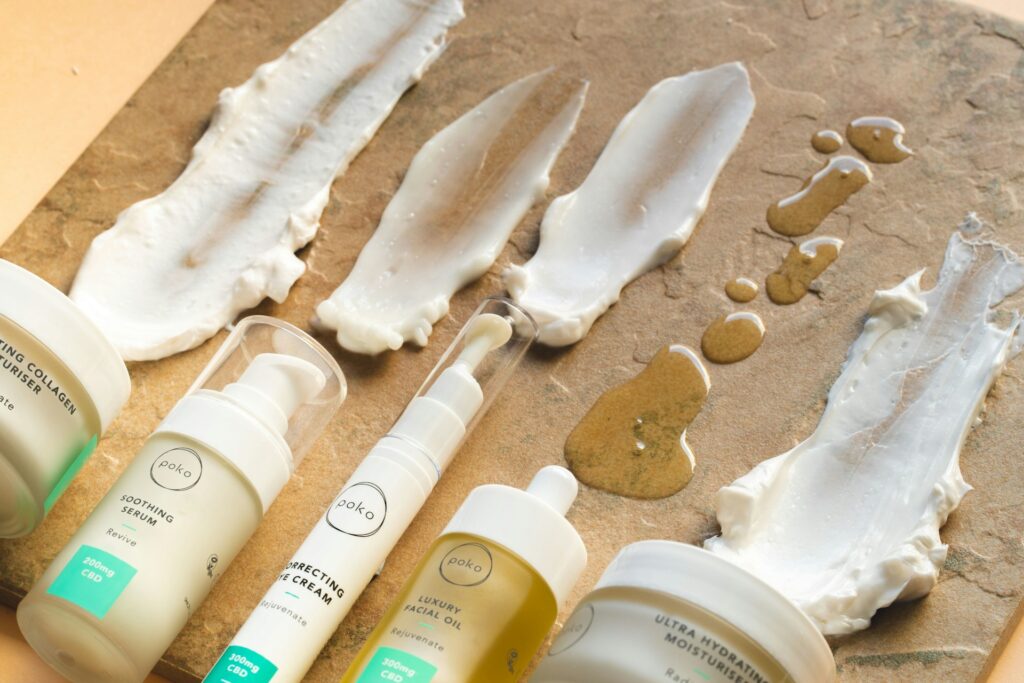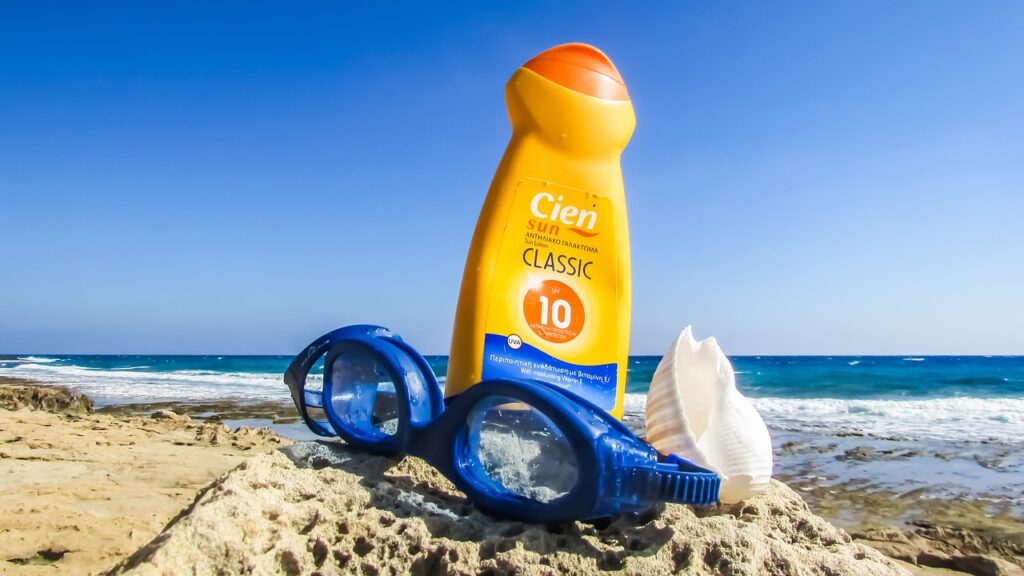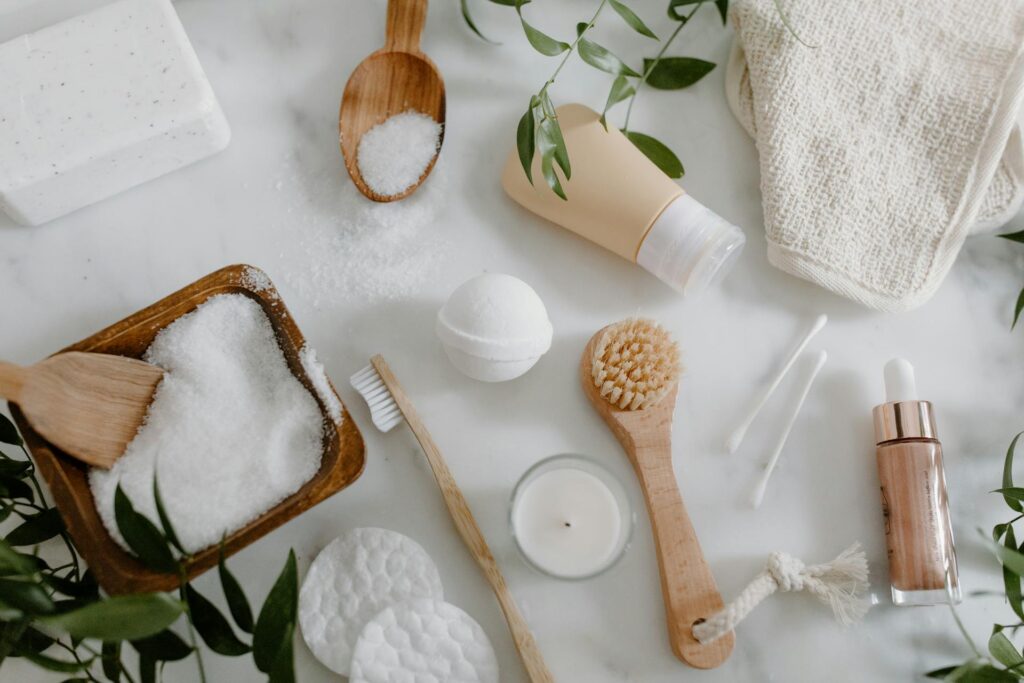We all sometimes like to play the game “be your cosmetologist” ”Google” symptoms, study photos, make a diagnosis using a Youtube video, and find (of course, based on reviews on the Internet) “the most effective product with the maximum concentration of active ingredients that will make your skin perfect”. And everything would be fine if it weren’t for the risk of playing too hard, and instead of “perfect skin” you get a red, flaky misunderstanding.
However, excess and inappropriate combinations of certain cosmetics groups may adversely affect the complexion. On the other hand, certain combinations complement each other and work well together in care. The key is to be aware of the substances we put on our faces. It will allow you to create a care plan tailored to your skin’s needs.
Retinol and peptides
Retinol is a substance with multidirectional effects: from anti-wrinkle to anti-acne. This vitamin A derivative stimulates collagen synthesis and has antibacterial and brightening properties. It can be described as the basis of anti-aging care. Peptides are short-chain proteins. There are three types of peptides: signaling, transport, and neuropeptides. Neuropeptides inhibit the secretion of neurotransmitters that enable muscle contraction.
Thanks to this, the neuropeptides used in cosmetics contribute to the relaxation of the muscles responsible for facial expressions, and thus slow down the formation and reduce the visibility of facial wrinkles. The combination of retinol and peptides can create an effective anti-wrinkle therapy.
Retinol and Ferulic Acid
Ferulic acid is a strong antioxidant, plus it reduces the irritating effect of retinol and enhances its effect. Together, they provide protection to skin cells, stimulate the natural production of collagen and elastin, and promote daily gentle renewal. In the products where this couple works, thanks to ferulic acid, retinol penetrates deeper into the skin, enhancing collagen synthesis.
Retinol and Niacinamide
Retinol & Niacinamide (Vitamin B3) is another ingredient recommended for use during a retinol treatment. Studies have shown that this component stimulates the synthesis of collagen and ceramides, ensuring the skin barrier’s integrity. As a result, niacinamide significantly reduces the side effects of retinol.
Retinol And Sunscreen
Using retinol makes the skin sensitive to sunlight, so high UV protection must be used during retinol treatment (even in winter). Otherwise, we risk that pigmentation will appear on the skin. Additionally, retinol is recommended for nighttime use due to its photosensitizing properties.
AHA/BHA and Ceramides
Alpha-hydroxy acids and beta-hydroxy acids are substances with exfoliating properties. They are helpful in acne therapy and have a cleansing effect on the skin. Moreover, they have anti-wrinkle and brightening properties. Depending on, among others, depending on the concentration, pH, substrate, skin preparation, or contact time of the preparation, may irritate the skin to a greater or lesser extent.
Ceramides will complement acid care. These are lipids that naturally occur in the skin. They can be described as a glue that connects cells in the stratum corneum of the epidermis. These substances reduce transepidermal water loss and help regenerate the skin.
Vitamin C and Ferulic Acid
Vitamin C and ferulic acid are the perfect combination! These are powerful antioxidants that prevent oxidative stress and enhance protection against ultraviolet radiation. When used together with vitamin C, ferulic acid increases its stability and effectiveness by up to eight times.
Vitamin C and sunscreens
Vitamin C is a strong antioxidant that neutralizes free radicals induced by, among others, UV radiation. This makes it worth including a cosmetic with vitamin C in your morning care. The antioxidant effect will complement anti-wrinkle therapy. Moreover, this ingredient has a brightening effect. Sunscreens protect the skin against the harmful effects of solar radiation. They are an important element of anti-wrinkle care. Combined with vitamin C, they create a composition that will deal with the negative effects of UV radiation.
Vitamin C helps fight free radicals created by overexposure to the sun and other environmental factors. At the same time, its effect can irritate and increase skin sensitivity (depending on the form and concentration), which makes the skin less resistant to the negative effects of ultraviolet radiation. Therefore, vitamin C is recommended to be used with high sun protection. Use simultaneously with cosmetics containing sunscreens enhances their protective properties.
Retinol and AHA/BHA acids
Retinol, alpha-hydroxy acids, and beta-hydroxy acids – all these substances exfoliate and may irritate. For this reason, it is not recommended to use them together. If retinol is already included in your care, your skin is sensitized and prone to irritation. Acids could additionally intensify side effects (too intense exfoliation, redness, burning, itching, tightness).
AHA/BHA and vitamin C
The combination of these two substances in separate cosmetics may be irritating. Moreover, acids change the pH, which modifies the properties of vitamin C and disrupts or even inhibits its action. This applies to using them simultaneously, one after the other. There are products available on the market containing acids combined with vitamin C that are safe and effective.
It all depends on the product formulation and active substance forms. Therefore, you can use a skincare product with vitamin C in the morning and one with alpha-hydroxy acids or beta-hydroxy acids in the evening. However, you should watch your skin as this combination may turn out to be unfavorable.
Retinol and Benzoyl Peroxide
These two substances are used in the treatment of acne, but they should not be combined as they neutralize each other’s antibacterial and skin properties. For acne problems, choose a product with one or the other ingredient.
Retinol and vitamin C
Products with vitamin C help fight free radicals, brighten the skin and exfoliate it. Retinol enhances collagen production and restores skin. For this reason, in combination with retinol, they can cause damage to the skin. In this combination, as in the case of acids, retinol and vitamin C cause mutual destabilization. Vitamin C shows the greatest and best activity at acidic pH, and retinol at neutral pH.
This combination disrupts their operation. To avoid the potential risk of irritation, especially if you overlap the products, it is advisable to use each product separately. So if you use vitamin C in the morning and retinol in the evening, they will support each other and your skin will be better than ever.
Niacinamide and vitamin C
Don’t use niacinamide and vitamin C at the same time. While both ingredients are antioxidants, they do not work together. Their effectiveness is significantly reduced when used together if there is a gap of less than 10 minutes between the application of vitamin C cosmetics and niacinamide. They should preferably be applied at different times of the day, for example, vitamin C in the morning routine and niacinamide in the evening. So you get the best of both.
Benzoyl peroxide and Moisturizer
This ingredient is ubiquitous in acne-prone skin care. It dries out the skin and thereby prevents the accumulation of sebum and the appearance of inflammation and rashes. Like any other acne treatment, benzoyl peroxide can cause dryness and irritation to the skin. Therefore, when using it together with other products, such as cleansers or moisturizers, you need to pay attention to ensure that they are as gentle as possible and have an intensely moisturizing texture
Conclusion
What to combine with? The exception to the rule is products of the same line, specifically created to solve one problem. A manufacturer who recommends day and night cream or cream and serum to eliminate any problem from one line strictly verifies the dosage of each substance. Active ingredients in cosmetics require special attention and proper use. Only in this case, do they work for the benefit of the skin. Combine them with approved substances and do not use them together with “antidotes”, and then the condition of your skin will always be pleasing.


